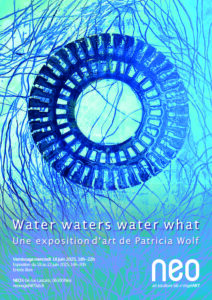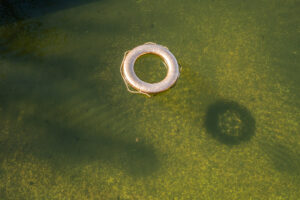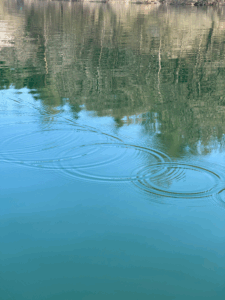The power of the oceans, the forgotten resources
In my artistic work, I deal with themes that are particularly close to my heart.
The world's oceans, majestic and mysterious, are habitats full of wonders and secrets. They form the backbone of the global ecosystem and maintain a living water cycle that regulates the climate and supplies the earth with vital water. Yet in the midst of these breathtaking underwater worlds, a silent but urgent exploitation is taking place.
### Exploitation and fishing
Human greed for resources has led to massive overfishing. Huge fishing floats roam the oceans, and their large nets not only catch the desired species, but also destroy sensitive habitats and kill countless other sea creatures unasked. These practices are not only detrimental to biodiversity, but also threaten the existence of coastal communities that are often dependent on fishing. The question remains: Who are the real winners in this system? While some players make huge profits, many local fishermen and communities suffer the economic consequences of industrial exploitation.
###The balance of natural systems
The power of the oceans is evident not only in the resources they provide, but also in their ability to regenerate themselves if they are not stressed beyond a certain point. The water cycle, the basis of our lives, is directly linked to the health of the oceans. Pollution, especially from plastic, jeopardizes the delicate balance; fish and other marine life are disrupted in their way of life and reproduction by microplastics and chemical waste.
###
turbines for energy generation, optimistic advances in the use of renewable energies, are simultaneously driving concerns about the impact on the underwater world. The pursuit of sustainability could be driven by well-thought-out strategies, but here too the profit motive is often the driving force behind decisions. The pursuit of a 'green' future inevitably raises questions about ethics and the impact on animal habitats.
###Tsunamis of change
Forces of nature such as tsunamis not only cause destruction, but are also indicators of the immense and often unpredictable potential of the oceans. They remind us of the fragility of human structures and the lifting power of nature. It is an undertone that warns us: the relationship between humans and nature is symbiotic, but we bear responsibility for our actions.
###The shadow of cruise ships
The ever-growing cruise ship industry is also evidence of the commercialization of the maritime world. Millions of tourists flock to the coasts, and while they enjoy the beauty of nature, the image of systematic exploitation of people and nature often remains in the background. The working conditions of the crew members, often precarious and underpaid, denounce the supposedly paradisiacal image of these voyages.
###Conclusion
The marine habitat, which is so rich in diversity and life, is under pressure and this pressure often results from human use. In the tension between renewal and destruction, between economy and ecology, we must finally understand: The real winners will not be those seeking short-term gains. Instead, we must work together as a global community to find a balance that protects the underwater worlds and preserves the habitat for future generations. The question remains whether we are willing to invest in a sustainable and responsible future, or whether we will continue to accept the profound exploitations that could ultimately lead us to the edge of the abyss.
Patrica Wolf
www.patriciawolf.eu




